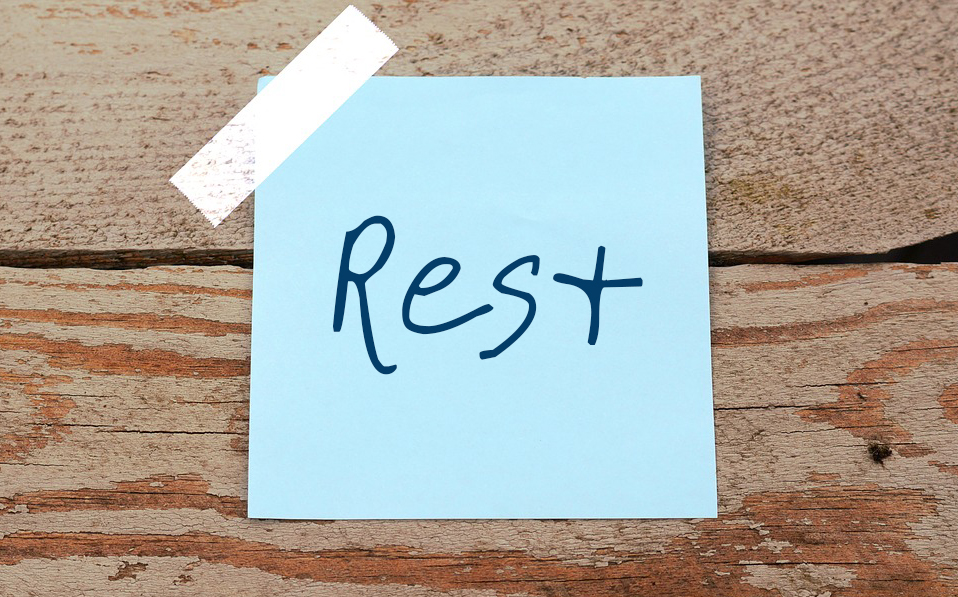I regularly see people on social media asking for help with the same dilemma. It usually reads like this:
“I am on vacation, and I still can’t stop checking my phone for work. I’m afraid that if I turn off my phone, I’ll miss something big, lose an account, get overlooked on a project, lose my job, etc. How do I take time off from work without feeling guilty or stressed about missing something?”

Here’s a good place to start: what are you repeating in your mind?
“I’m just going to answer this one call; I have to.”
“Checking my email will only take one minute.”
“AH! It’s Chris! I should take this.”
Mindfulness habits can help you switch gears between work and rest. When you’re at work, you have a to-do list (whether physical or mental.) You are conditioned to operate in this mode; it’s your current habit. Rather than trying to completely re-wire yourself on your day(s) off, piggyback on your existing habit and give yourself a task for today. Maybe it’s rest. REST. Today, rest is as important as selling your product, closing a deal, stitching a wound, or teaching fractions– whatever your usual tasks are.
Write your task on a sticky note, and stick it where you can see it as a constant reminder of your goal. When fear of missing out kicks in on your day off, look to your mantra.
“REST.
I value rest. I need rest. I can rest.
If I do not rest, I will burn out or get sick.
My capable team has got things covered.
I will return stronger because I refilled my tank.”
If rest is too abstract, make a list of restful pursuits.
Walk my dog in the park
Practice yoga
Play a board game with a loved one
Knit
Play golf

In a healthy relationship,
absence makes the heart grow fonder.
It’s okay if you are missed for a short time;
it indicates that you are a valuable member!
- If everything falls apart because 1 team member is absent for a day, or someone is made to feel guilty for taking reasonable time to refuel, it is a sign that the relationship with others is unbalanced.
- If we personally feel guilty for taking time to take care of ourselves, it is a sign that the internal relationship we have with our self is unbalanced.

The sticky-note habit helps us keep our mind’s eye fixed on our core values (or the yamas) and minimizes fear of missing out. Taking time to rest and study yourself (svadhyaya) can help you turn an abstract goal (like rest) into something tangible you can measure. It can give you the courage to speak candid truth (satya) like:
- I understand that things are not the same when a team member is away. I did a great job delegating my usual responsibilities before I left, and I always help others when they are away. Prioritizing my health makes me a better team member.
- This project sounds like a great opportunity, but I am going to have to pass. Have you considered asking Julio?
- This project sounds like a great opportunity, and I am in a great place to help you with it. Let’s get started!
Many industries move at a rapid pace, and competition is fierce. It’s true. Healthy teams are comprised of healthy individuals. Healthy relationships at work are open and honest [in the kindest, most professional, and most respectable way] about boundaries, skills, limitations, and expectations. A healthy relationship with your self requires nothing less. Support others when they need a break, and don’t feel guilty when it’s your time to recharge.
Hope that helps!

I am ready to help your team with mindfulness and yoga in the office.
Let’s schedule a lunch & learn. Email me to get started.

